#meeting the man: james baldwin in paris
Quote
Love has never been a popular movement and no-ones ever wanted really to be free. The world is held together, really it is, held together, by the love and the passion of a very few people. Otherwise, of course you can despair. Walk down the street of any city, any afternoon and look around you.
What you've got to remember is what you're looking at is also you. Everyone you're also looking at is also you. You could be that person. You could be that monster, you could be that cop. You've got to decide in yourself not to be.
Meeting The Man: James Baldwin in Paris
12 notes
·
View notes
Photo
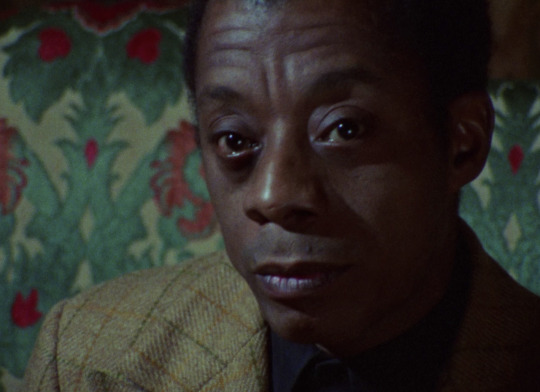
Meeting the Man: James Baldwin in Paris
1970. Documentary
By Terence Dixon
About: A portrait of James Baldwin, one of the towering figures of 20th-century American literature, Black culture and political thought, filmed in Paris.
Country: United Kingdom, France
Language: English
#Meeting the Man: James Baldwin in Paris#James Baldwin#American literature#Paris#Terence Dixon#Documentary#1970#1970s#United Kingdom#France#English
4 notes
·
View notes
Text
free online james baldwin stories, essays, videos, and other resources
**edit
James baldwin online archive with his articles and photo archives.
---NOVELS---
Giovanni's room"When David meets the sensual Giovanni in a bohemian bar, he is swept into a passionate love affair. But his girlfriend's return to Paris destroys everything. Unable to admit to the truth, David pretends the liaison never happened - while Giovanni's life descends into tragedy. This book introduces love's fascinating possibilities and extremities."
Go Tell It On The Mountain"(...)Baldwin's first major work, a semi-autobiographical novel that has established itself as an American classic. With lyrical precision, psychological directness, resonating symbolic power, and a rage that is at once unrelenting and compassionate, Baldwin chronicles a fourteen-year-old boy's discovery of the terms of his identity as the stepson of the minister of a storefront Pentecostal church in Harlem one Saturday in March of 1935. Baldwin's rendering of his protagonist's spiritual, sexual, and moral struggle of self-invention opened new possibilities in the American language and in the way Americans understand themselves."
+bonus: film adaptation on youtube. (if you’re a giancarlo esposito fan, you’ll be delighted to see him in an early preacher role)
Another Country and Going to Meet the Man Another country: "James Baldwin's masterly story of desire, hatred and violence opens with the unforgettable character of Rufus Scott, a scavenging Harlem jazz musician adrift in New York. Self-destructive, bad and brilliant, he draws us into a Bohemian underworld pulsing with heat, music and sex, where desperate and dangerous characters betray, love and test each other to the limit." Going to meet the Man: " collection of eight short stories by American writer James Baldwin. The book, dedicated "for Beauford Delaney", covers many topics related to anti-Black racism in American society, as well as African-American–Jewish relations, childhood, the creative process, criminal justice, drug addiction, family relationships, jazz, lynching, sexuality, and white supremacy."
Just Above My Head"Here, in a monumental saga of love and rage, Baldwin goes back to Harlem, to the church of his groundbreaking novel Go Tell It on the Mountain, to the homosexual passion of Giovanni's Room, and to the political fire that enflames his nonfiction work. Here, too, the story of gospel singer Arthur Hall and his family becomes both a journey into another country of the soul and senses--and a living contemporary history of black struggle in this land."
If Beale Street Could Talk"Told through the eyes of Tish, a nineteen-year-old girl, in love with Fonny, a young sculptor who is the father of her child, Baldwin's story mixes the sweet and the sad. Tish and Fonny have pledged to get married, but Fonny is falsely accused of a terrible crime and imprisoned. Their families set out to clear his name, and as they face an uncertain future, the young lovers experience a kaleidoscope of emotions-affection, despair, and hope. In a love story that evokes the blues, where passion and sadness are inevitably intertwined, Baldwin has created two characters so alive and profoundly realized that they are unforgettably ingrained in the American psyche."
also has a film adaptation by moonlight's barry jenkins
Tell Me How Long the Train's been gone At the height of his theatrical career, the actor Leo Proudhammer is nearly felled by a heart attack. As he hovers between life and death, Baldwin shows the choices that have made him enviably famous and terrifyingly vulnerable. For between Leo's childhood on the streets of Harlem and his arrival into the intoxicating world of the theater lies a wilderness of desire and loss, shame and rage. An adored older brother vanishes into prison. There are love affairs with a white woman and a younger black man, each of whom will make irresistible claims on Leo's loyalty.
---ESSAYS---
Baldwin essay collection. Including most famously: notes of a native son, nobody knows my name, the fire next time, no name in the street, the devil finds work- baldwin on film
--DOCUMENTARIES--
Take this hammer, a tour of san Francisco.
Meeting the man
--DEBATES:--
Debate with Malcolm x, 1963 ( on integration, the nation of islam, and other topics. )
Debate with William Buckley, 1965. ( historic debate in america. )
Heavily moderated debate with Malcolm x, Charles Eric Lincoln, and Samuel Schyle 1961. (Primarily Malcolm X's debate on behalf of the nation of islam, with Baldwin giving occassional inputs.)
----
apart from themes obvious in the book's descriptions, a general heads up for themes of incest and sexual assault throughout his works.
#james baldwin#motivated by i think people here think it's harder to find resources and read than it actually is. so much stuff online!#motivation nr 2 wtf
8K notes
·
View notes
Text
"There may not be, you know, as much humanity in the world as one would like to see, but there is some. There's more than one would think. In any case, if you...if you break faith with what you know...that's a betrayal of many, many, many, many people. I may know six people, but that's enough. Love has never been a popular movement and no-one's ever wanted really to be free. The world is held together, really it is, held together, by the love and the passion of a very few people. Otherwise, of course you can despair. Walk down the street of any city, any afternoon, and look around you. What you've got to remember is what you're looking at is also you. Everyone you're looking at is also you. You could be that person, you could be that monster, you could be that cop. And you have to decide in yourself not to be."
(Meeting the Man: James Baldwin in Paris (1970), dir. Terence Dixon)
5K notes
·
View notes
Text
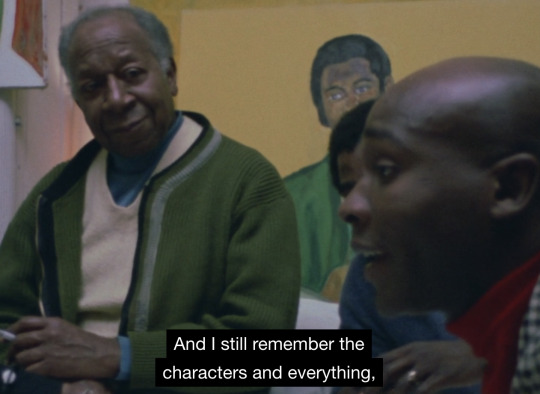
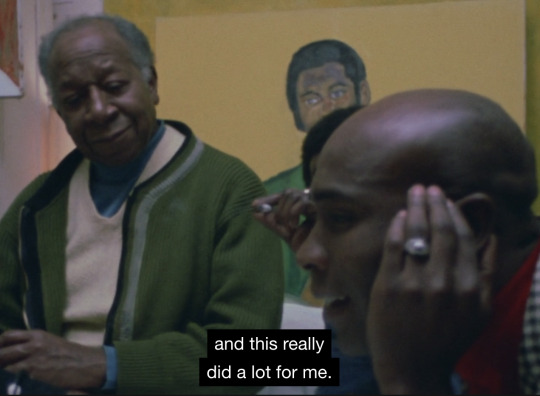
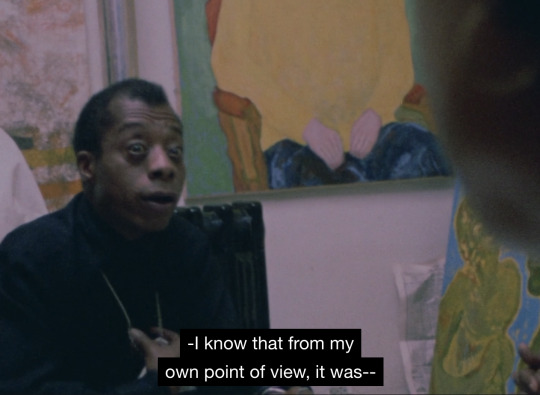
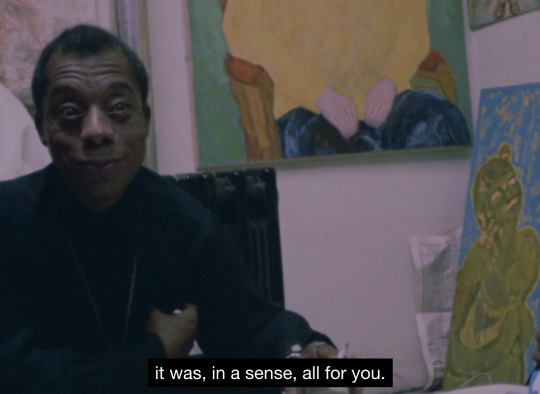



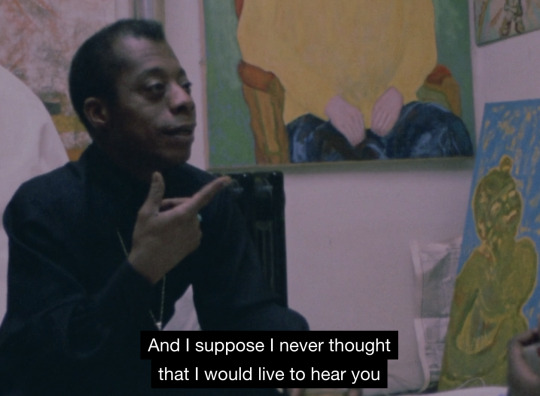
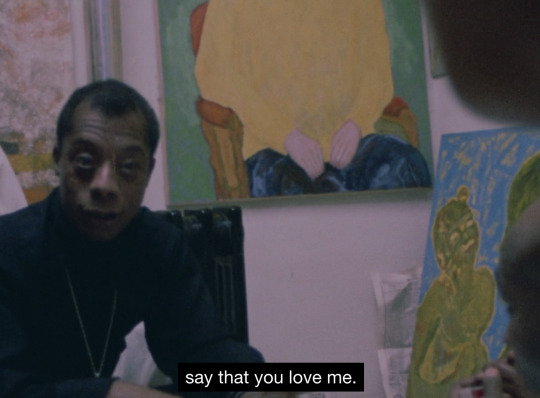
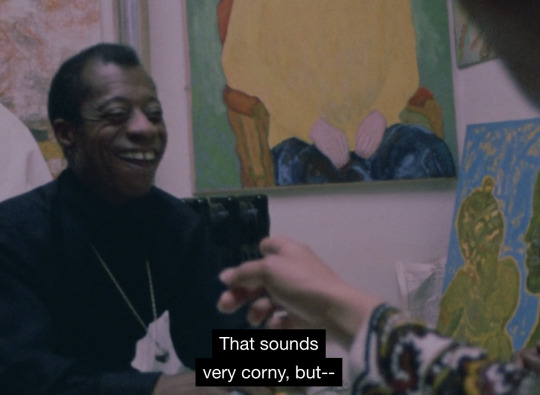
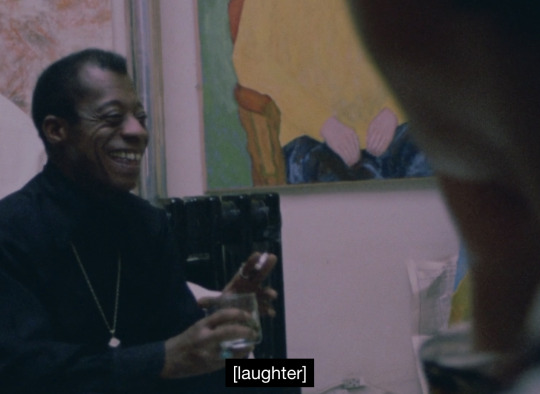
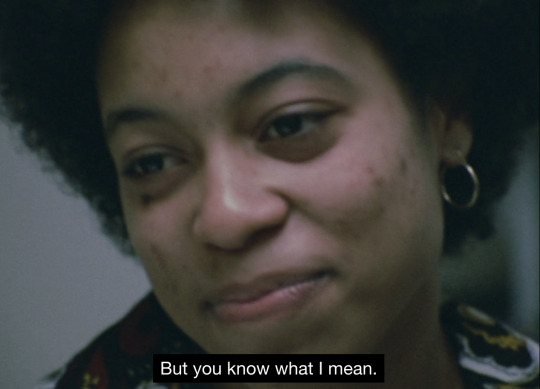
MAN: The first time I had the opportunity of reading your book, "Another Country," I believe—and this was quite some time ago. But that was the first book I ever read from cover to cover. And I haven't read another since. And—really!—and I still remember the characters and everything, and this really did a lot for me, you know?
JAMES BALDWIN: I know that from my own point of view, it was—it was, in a sense, all for you. Do you know? I know that I love you, but you haven't necessarily got to know that. And I suppose I never thought that I would live to hear you say that you love me. That sounds very corny, but—[laughter]—but you know what I mean.
Meeting the Man: James Baldwin in Paris
257 notes
·
View notes
Text

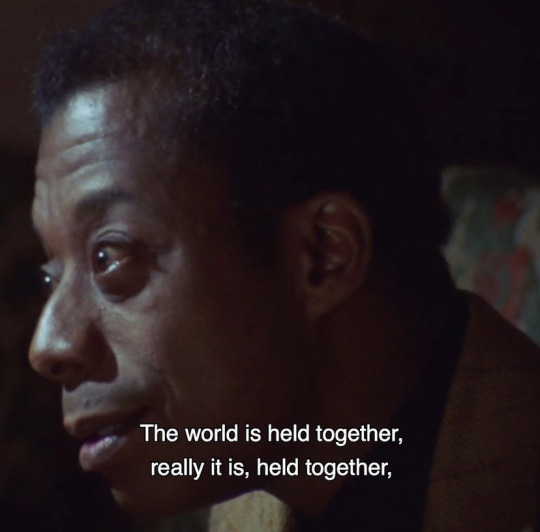
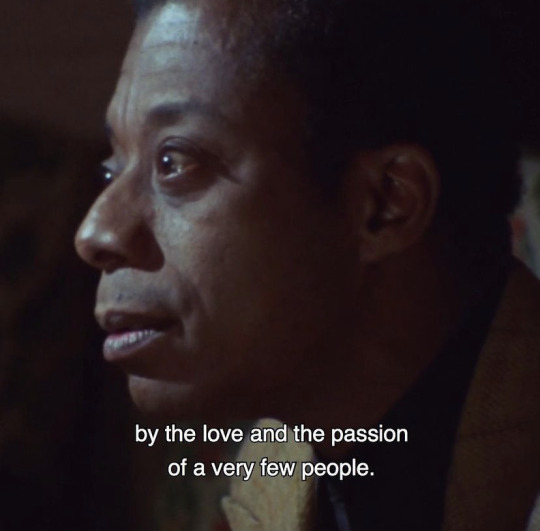
“Love has never been a popular movement. The world is held together, really it is, held together, by the love and the passion of very few people.” — James Baldwin in Meeting the Man: James Baldwin in Paris (1970) dir. Terence Dixon
2K notes
·
View notes
Text
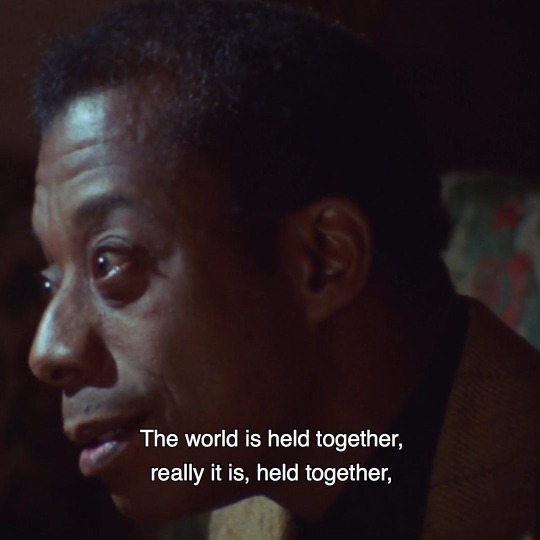

meeting the man: james baldwin in paris (1970) | dir. terence dixon
@the.Vibe
59 notes
·
View notes
Text
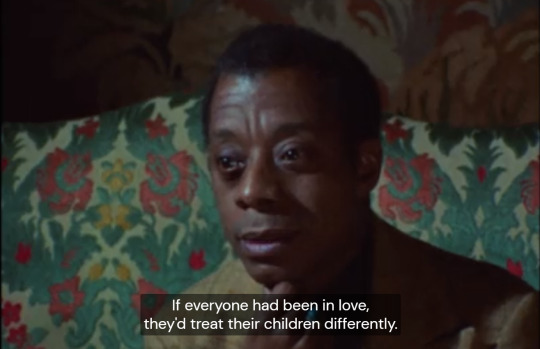

James Baldwin: Meeting the Man in Paris (1970, dir. Terence Dixon)
73 notes
·
View notes
Text
There may not be as much humanity in the world as one would like to see, but there is some. There’s more than one would think. In any case, if you break faith with what you know, that’s a betrayal of many, many, many people. I may know six people, but that’s enough. Love has never been a popular movement and no one’s ever wanted really to be free. The world is held together, really it is, held together, by the love and the passion of a very few people. Otherwise, of course you can despair. Walk down the street of any city, any afternoon, and look around you. What you’ve got to remember is that what you’re looking at is also you. Everyone you’re looking at is also you. You could be that person. You could be that monster, you could be that cop. And you have to decide, in yourself, not to be. [...] The logic of despair isn’t for me. Anyway, it’s too easy, it’s too fashionable. I’m aware that I and the people I love may perish in the morning. I know that. But there’s light on our faces now.
— James Baldwin, Meeting the Man: James Baldwin in Paris
72 notes
·
View notes
Text
Book Review 40 – Giovanni’s Room by James Baldwin
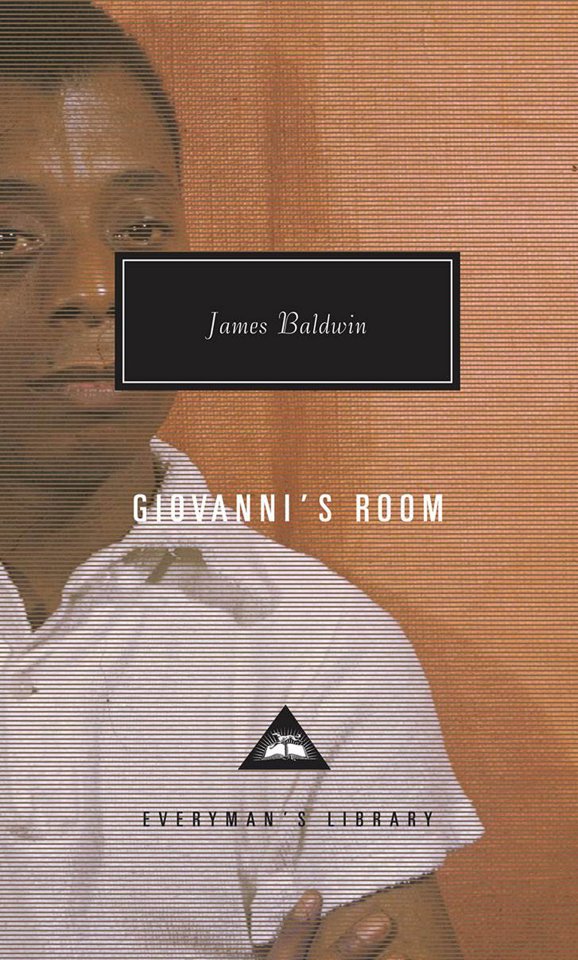
Okay, 40th book of the year! And yes I’m going to be smug about that, no matter how pathetically it pales in comparison to some of the rest of you. To commemorate the occasion I decided to acquire some actual Culture of the kind I can talk about reading to older relatives and have them nod approvingly. I’d say I wish this had been assigned in some English class I took, but honestly I’d have just ended up skimming and using sparknotes and generally ruined it for myself.
Baldwin, as it turns out, really does live up to the hype. This book was absolutely sublime. I feel like it’s going to be impossible to be fair to whatever I read next.
The book follows David, an American expat in late ‘50s Paris. Specifically, a queer man with truly apocalyptic levels of internalized homophobia and lack of self-awareness spending his late 20s valiantly pretending not to be gay while contriving every possible excuse not to go back to his father and the rest of his life in America. The book takes place while his girlfriend is taking an extended vacation in Spain deciding whether she wants to marry him, and he meets Giovanni, a gorgeous Italian man who’d left his village and ended up in Paris under unclear circumstance, while he’s working at a gay bar David views with visceral contempt even as he visits it. They have a passionate romance, and unsurprisingly it all falls apart in a mess of a tragedy that ruins just about everyone involved (Giovanni most of all).
This was the most beautiful thing I’ve read all year. I’m not even sure it’s particularly close. Every single page had a line or two of incidental narration or dialogue that struck me enough to want to save it – I’d given up trying to note them all by the end of the first chapter. The narration has the sort of elevated, literary quality where everyone is two or three times more eloquent and articulate than they really should be, but when the things they say are so lovely it’s hard to mind that minor offence against verisimilitude – the constant peppering of French into everyone’s dialogue is honestly much more of an annoyance, if only because it keeps making me wonder what language all the other dialogue among these French Parisians is supposed to be in. The exact details of their speech (and tendency to monologue about the details of their psychology) aside, just about every character felt really, achingly real, all broken by the world in one way or another and dealing with it with whatever self-destructive coping mechanisms they have to call their own. Insert your favourite Richard Silken quote here.
Tangentially to the actual content of the book; I of course know Baldwin was one of the canonical Great Authors of the 20th century (I knew this before I knew literally any other fact about him), but my god does the edition I have of the book lay it on thick. There’s a 17-page forward that seemed to be an incredibly dryly written English essay talking about his influences and the role of Paris in American literature and etc (I skimmed the first few pages and skipped the rest, as is my habit with forwards by people who had nothing to do with actually creating the book and whose name I don’t recognize), followed by several more pages of a timeline of the authors life. I swear it’s like they’re trying to make reading this seem as much like homework as possible.
Even more tangentially; I was aware that Baldwin was gay, before reading this, and more vaguely aware that some of his work explored this. But I was expecting more, like, Great Gatsby-plus levels of subtext, not just explicit and unsanitized portrayals being the focus of the entire book. That came out in ‘59! Not exactly an obscure or reviled one either. I feel like I could go back and retroactively give myself permission to sneer and roll my eyes at a lot of ‘grounbreaking queer representation’ now. (This is a sign I have spent altogether too much of my life reading discourse on tumblr and tiwtter).
Trying to talk about the themes of Giovanni’s Room is probably just wasted effort – spend five minutes and I’m sure you can find an extensively researched essay by someone whose devoted years of their life to the subject. But it did really strike me how, like, fundamentally inegalitarian the book’s vision of romance is? Aside from David and Giovanni themselves I mean (and even then, David’s internalized homophobia expressed itself in large part through a terror and resentment of being made the woman (domestic homemaker) to Giovanni’s man (breadwinner)). David and Hella’s relationship is just drowning in ‘50s patriarchy, of course, with the future they sketch out for themselves both baldly hierarchical and just incredibly bleak, and David’s parents and upbringing aren’t exactly inspirational reading either. But Paris’ gay underground isn’t exactly portrayed as a liberated and welcoming space – it’s disgusting older men blatantly exploiting and being exploited by desperate younger ones, everyone involved pretending they don’t know what they’re doing and hating themselves and each other for it. All just incredibly unsentimental and anti-romantic.
David as a character and as a narrator really was fascinating, too. In that he’s such a fucking mess with zero awareness of his emotions who keeps making everything worse and seems to almost cause as much heartache for everyone around him as he possibly could. If he wasn’t the protagonist he’d be the most loathsome character in the book, or at least close to it. Was great.
Though one thing that really does drive home how historical the setting is is just how coincidental so many social meetings are. The cast is largely a bunch of bohemians and vagabonds and expatriates without real fixed addresses, and so much of their interaction revolves around just happening to run into each other as they frequent some of the same locales. Which, like, yes, that is just how socializing worked for most people until a historical ten minutes ago, but still very alien to me, someone with an electronic correspondence planning and scheduling ~90% of social things I’ve done since I left school.
Anyway yes, this isn’t an easy read – most emotional and heartwrenching thing I’ve read all year by far, and the only thing last year I can really think of that might beat it is the final chapters of The Making of the Atomic Bomb – but it really is a beautiful one. Five stars.
80 notes
·
View notes
Text
"Love has never been a popular movement. And no one's ever wanted, really, to be free.
The world is held together, really it is held together, by the love and the passion of a very few people.
Otherwise, of course you can despair. Walk down the street of any city, any afternoon, and look around you. What you've got to remember is what you're looking at is also you. Everyone you're looking at is also you. You could be that person. You could be that monster, you could be that cop. And you have to decide, in yourself, not to be."
- James Baldwin
[source: meeting the man: james baldwin in paris]
21 notes
·
View notes
Text
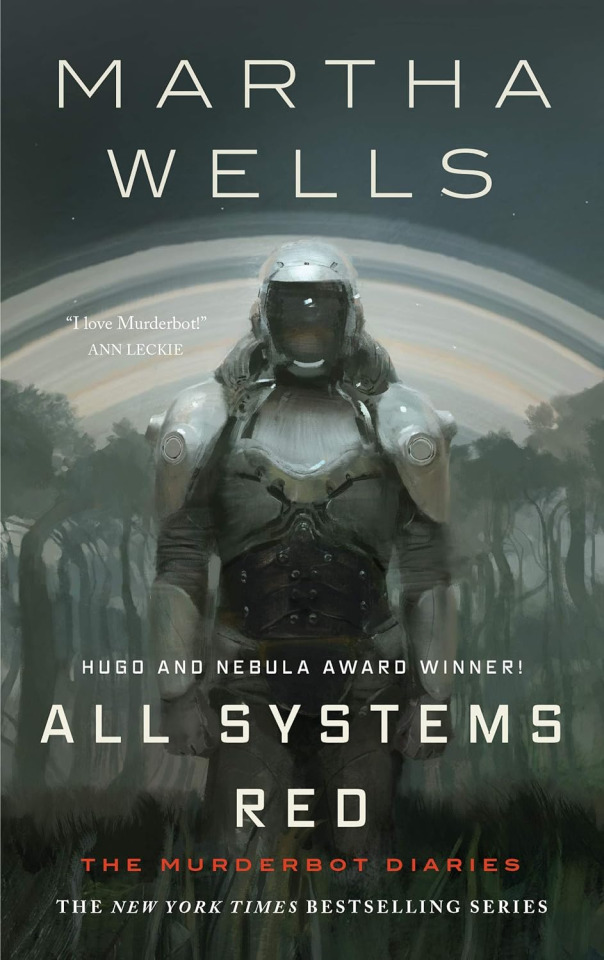

The Murderbot Diaries Summary:
In a corporate-dominated space-faring future, planetary missions must be approved and supplied by the Company. For their own safety, exploratory teams are accompanied by Company-supplied security androids. But in a society where contracts are awarded to the lowest bidder, safety isn’t a primary concern. On a distant planet, a team of scientists is conducting surface tests, shadowed by their Company-supplied ‘droid--a self-aware SecUnit that has hacked its own governor module and refers to itself (though never out loud) as “Murderbot.” Scornful of humans, Murderbot wants is to be left alone long enough to figure out who it is, but when a neighboring mission goes dark, it's up to the scientists and Murderbot to get to the truth.
Giovanni's Room Summary:
David, a young American in 1950s Paris, is waiting for his fiancée to return from vacation in Spain. But when he meets Giovanni, a handsome Italian barman, the two men are drawn into an intense affair. After three months David's fiancée returns and, denying his true nature, he rejects Giovanni for a 'safe' future as a married man. His decision eventually brings tragedy.
#the murderbot diaries#murderbot diaries#murderbot#martha wells#giovanni's room#james baldwin#lgbt books#lgbt literature#queer books#queer literature#lgbt#lgbtq#lgbtqia#poll#bookblr#booklr#books#literature#queer lit
13 notes
·
View notes
Text
Happy late birthday, Mr. Baldwin!
Meeting the Man: James Baldwin in Paris
31 notes
·
View notes
Text
I beg the people that don't know James Baldwin to learn about him, and I beg the people that only know him from quotes and excerpts to read his work. He's a brilliant writer, and so articulate and passionate
If his writing has resonated with you, please try getting PDFs or copies of Giovanni's Room, If Beale Street Could Talk, or Notes of a Native Son. Please, watch the movies I Am Not Your Negro, or Meeting the Man: James Baldwin in Paris. Please, listen to his interviews and TV appearances available on YouTube
11 notes
·
View notes
Text

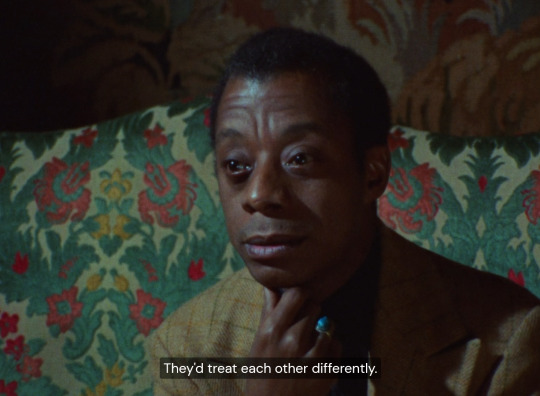
Meeting the Man: James Baldwin in Paris (Terence Dixon, 1970)
24 notes
·
View notes
Photo

✨best books i read in 2022 in no particular order✨
Beautiful Country by Qian Julie Wang (2021)
This "memoir of an undocumented childhood" is a beautiful story of a family who cared for and looked after one another and of a child who had a lot of fears but was at the same time wonderfully brave and curious and determined.
My Brilliant Friend by Elena Ferrante (2011)
This is the story of Elena and Lila, two childhood friends living in a rough neighborhood on the outskirts of Napoli. We follow their story, narrated by Elena, until they become teenagers, when their paths diverge and their friendship is transformed forever.
Persuasion by Jane Austen (1817)
Persuasion tells the story of a second chance, the reawakening of love between Anne Elliot and Captain Frederick Wentworth, whom eight years earlier she had been persuaded not to marry.
Giovanni's Room by James Baldwin (1956)
This is the story of David, an american man living in Paris, living off the little money his father is willing to lend him, while his girlfriend is in Spain, On a night out he meets a young bartender named Giovanni and goes home with him.
A Swim in a Pond in the Rain by George Saunders (2021)
Paired with iconic short stories by Chekhov, Turgenev, Tolstoy, and Gogol, the seven essays in this book are intended for anyone interested in how fiction works, how the mind itself works while reading, and of how the reading and writing of stories make genuine connection possible.
Franny and Zooey by J.D. Salinger (1961)
When Franny’s emotional and spiritual doubts reach new heights, her older brother Zooey, a misanthropic former child genius, offers her consolation and brotherly advice. These two stories offer a touching snapshot of the distraught mindset of early adulthood and are full of insightful emotional observations and witty turns of phrase.
Jazz by Toni Morrison (1993)
a passionate, profound story of love and obsession that brings us back and forth in time, as a narrative is assembled from the emotions, hopes, fears, and deep realities of black urban life.
The Love Songs of W.E.B. Du Bois by Honorée Fanonne Jeffers (2021)
This is the story of Ailey and her ancestor's journey in America through centuries, from the colonial slave trade to our days. We meet Ailey when she is a child and watch her grow up, until the moment when, as a college graduate, she embarks on a journey to uncover her family's past.
Young Mungo by Douglas Stuart (2022)
Growing up in a housing estate in Glasgow, Mungo and James are born under different stars--Mungo a Protestant and James a Catholic--and they should be sworn enemies if they're to be seen as men at all. Yet against all odds, they become best friends.
Real Life by Brandon Taylor (2020)
Almost everything about Wallace is at odds with the Midwestern university town where he is working uneasily toward a biochem degree. But over the course of a weekend, a series of confrontations with colleagues, and an unexpected encounter with a straight, white classmate, conspire to fracture his defenses.
The Art of Fielding by Chad Harbach (2011)
This is the story of Henry Skrimshander who gets recruited by a small college to play baseball and quickly becomes the star of the team, and of Mike Schwartz, the baseball team captain who recruited Henry, and who doesn't know what to do with his life, as his relationship with Henry becomes more and more co-dependent.
Unlikely Animals by Annie Hartnett (2022)
Emma was set to start med school but her father got sick with a brain disease and she decided to go back home to New Hampshire. At home her dad and her mum are in a fight, her brother is just out of rehab her childhood best friend is missing and Emma’s dad started seeing ghosts.
This Side of Paradise by F. Scott Fitzgerald (1920)
Amory is a boy with family money who attends a private high school, and then Princeton and then gradually becomes disillusioned with life.
Interpreter of Maladies by Jhumpa Lahiri (1999)
Navigating between the Indian traditions they've inherited and the baffling new world, the characters in Jhumpa Lahiri's elegant, touching stories seek love beyond the barriers of culture and generations.
Fight Night by Miriam Toews (2021)
It is told in the unforgettable voice of Swiv, a nine-year-old living in Toronto with her pregnant mother, who is raising Swiv while caring for her own elderly, frail, yet extraordinarily lively mother.
Scoop by Evelyn Waugh (1938)
William Booth is a young man living in the countryside, writing for a newspaper little colums about nature, and he is sent by mistake (he has the same surname as a much cooler novelist) to the fictional country Ishmaelia to cover a war for his newspaper. Various other little mishaps ensue.
Maps of our Spectacular Bodies by Maddie Mortimer (2022)
This is the story of Lia, Harry and their daughter Iris, a beautiful loving family. Iris is a teenager and has to navigate all that comes with that while, at the same time, learning to live with the fact that her mum's cancer has come back, and doctors are telling them it's terminal.
Dracula by Bram Stoker (1897)
When Jonathan Harker visits Transylvania to help Count Dracula with the purchase of a London house, he makes a series of horrific discoveries about his client. Soon afterwards, various bizarre incidents unfold in England.
Of Mice and Men by John Steinbeck (1937)
It narrates the experiences of George Milton and Lennie Small, two displaced migrant ranch workers, who move from place to place in California in search of new job opportunities during the Great Depression in the United States.
Born a Crime by Trevor Noah (2016)
The memoir of one man’s coming-of-age, set during the twilight of apartheid and the tumultuous days of freedom that followed.
The Old Man and the Sea by Ernest Hemingway (1952)
It is the story of an epic struggle between an Santiago, an old, seasoned fisherman and his life's greatest catch of fish, after eighty-four days that he has set out to sea and every time returned empty-handed.
Mrs. Dalloway by Virginia Woolf (1925)
One day in the life of Clarissa Dalloway. She is getting ready for a party she is hosting at her house. It is also a day in the life of a young veteran, Septimus who fought in WWI and got shellshocked: his last day. The two move around London and think back to episodes of their past.
Peril at End House by Agatha Christie (1932)
Poirot is vacationing in Cornwall, meets young "Nick" Buckley and her friends. He is persuaded that someone is out to kill her. Though he aims to protect Nick, a murder happens that provokes Poirot to mount a serious investigation.
#DM FOR LINKS#i love all of these books and i would love it if you read them and then got back to me immediately#my dms are always open to talk about books <3#books#booksblr#bookblr#dark academia#sorry cringe tag but i want people to read the books i want them to read!#light academia#classic#classic literature#books and reading#books and coffee#books and literature#young mungo#beautiful country#my brilliant friend#elena ferrante#virginia woolf#agatha christie#dracula#dracula daily#the art of fielding#unlikely animals#ernest hemingway#book recs
134 notes
·
View notes